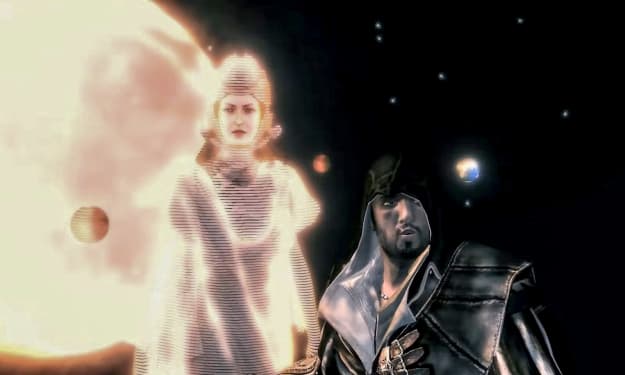This is a fascinating book that will be forever in the ranks of the best books ever written. To understand Notes from Underground, it helps if you’re aware of its historical context. The book is a heavy critique of a novel by Chernyshevsky that praises rational egoism, under the growing influence of Kant and the enlightenment movement. Humans are rational, and what is rational is what maximizes our self-interest. The selfishness involved is already problematic, but what Dostoevsky finds repugnant is the view of mankind as rational at all.
The work is divided into two parts, which to my surprise were oddly independent, despite having coherence together. It is part of the story, but it is a heavy philosophical monologue from the protagonist. This is what I’ve always read and heard about Notes the Underground, but it is only a part of the work, the smallest one at that. If you have read passages or quotes from the book, but for whatever reason, you haven’t read it, you will get the philosophical content from this part alone, which is rather short. The book itself is small at 130 pages, but the first part is less than 50.
This is where he articulates his philosophical position against a rational outlook of men. While it makes “sense” that we ought to act in rational self-interest, we do not. That’s not the type of creature we are. He also argues against a deterministic view of both man and society, as a machine that can be calculated and planned. He believes that this is misguided, a complete misunderstanding of our true nature. And his exposition of men’s irrationality serves as a critique of utopianism in general, which was flourishing at the time, and would lead to the communist state of the soviet union half a century later. His metaphors and allegories are brilliant and beautifully put, such as the “Stone Wall”, representing the limits of nature, “two plus two equals four” (or five) as rationality and determinism, and “Crystal Palace”, as an example of progress and rational planning.
The second part is a proper novel. While it is still the character from the philosophical monologue of the first part, there is a plot and dialogue. In some ways, it tries to embody the ideas covered previously in human form. Not as abstract thoughts but lived. I found the story hard to read. Not in the sense that is difficult, but almost because of a distaste for the character, very similar to Camus’ “The Stranger”. It explores the self-consciousness and insecurities of the protagonist. His feeling of both superiority and inferiority, his need for both solitude and connection, but most of all: his resentment. He lives a life full of resentment for the world and other people. And perhaps most disturbing, he is deeply aware of his condition. And in part he’s always trying to change, hopeful that perhaps he can change who he is, but always failing. He is always dragged back into his own spiteful personality and worldview, unable to find peace or happiness. It greatly reminded me of my childhood, when I often felt a deep antagonism towards the world and other people. Reading it was both a painful reminder of some of the mental states I used to have, but at the same time made me glad how much I have grown and changed since then.
I liked the second part, and I think it does add some value to the first one, but at the same time, it often feels a bit flat. Not sure exactly sure why. Sometimes it feels a bit too emotional, dramatic, and forced. I have an intuition that it is perhaps due to the different culture Dostoyevsky lived in, and also the time gap from when the work was written. He was, in some sense, writing in a different world. While still grappling with existential problems that plague any human being regardless of culture and historical period, the way those existential themes are expressed in the narrative will differ.
Nevertheless, it is a brilliant work and only makes me more eager to read the whole work Dostoyevsky has produced. I will share a quote below, which is gigantic and violates almost every rule of a “good” or popular Medium post. However such rules have to be broken when dealing with such excellence. It perfectly encapsulates Notes from Underground, and its wisdom is beyond measure. I have read it dozens of times, and it is what made me want to read the book in the first place. You may read it every day until you die, and you will still not exhaust its wisdom and insight.
“And, indeed, this is the odd thing that is continually happening: there are continually turning up in life moral and rational persons, sages and lovers of humanity who make it their object to live all their lives as morally and rationally as possible, to be, so to speak, a light to their neighbours simply in order to show them that it is possible to live morally and rationally in this world. And yet we all know that those very people sooner or later have been false to themselves, playing some queer trick, often a most unseemly one.
Now I ask you: what can be expected of man since he is a being endowed with strange qualities? Shower upon him every earthly blessing, drown him in a sea of happiness, so that nothing but bubbles of bliss can be seen on the surface; give him economic prosperity, such that he should have nothing else to do but sleep, eat cakes and busy himself with the continuation of his species, and even then out of sheer ingratitude, sheer spite, man would play you some nasty trick. He would even risk his cakes and would deliberately desire the most fatal rubbish, the most uneconomical absurdity, simply to introduce into all this positive good sense his fatal fantastic element. It is just his fantastic dreams, his vulgar folly that he will desire to retain, simply in order to prove to himself — as though that were so necessary — that men still are men and not the keys of a piano, which the laws of nature threaten to control so completely that soon one will be able to desire nothing but by the calendar.
And that is not all: even if man really were nothing but a piano-key, even if this were proved to him by natural science and mathematics, even then he would not become reasonable, but would purposely do something perverse out of simple ingratitude, simply to gain his point. And if he does not find means he will contrive destruction and chaos, will contrive sufferings of all sorts, only to gain his point! He will launch a curse upon the world, and as only man can curse (it is his privilege, the primary distinction between him and other animals), may be by his curse alone he will attain his object — that is, convince himself that he is a man and not a piano-key! If you say that all this, too, can be calculated and tabulated — chaos and darkness and curses, so that the mere possibility of calculating it all beforehand would stop it all, and reason would reassert itself, then man would purposely go mad in order to be rid of reason and gain his point!
I believe in it, I answer for it, for the whole work of man really seems to consist in nothing but proving to himself every minute that he is a man and not a piano-key! It may be at the cost of his skin, it may be by cannibalism! And this being so, can one help being tempted to rejoice that it has not yet come off, and that desire still depends on something we don’t know?”
About the Creator
La Brava
here to entertain you







Comments
There are no comments for this story
Be the first to respond and start the conversation.